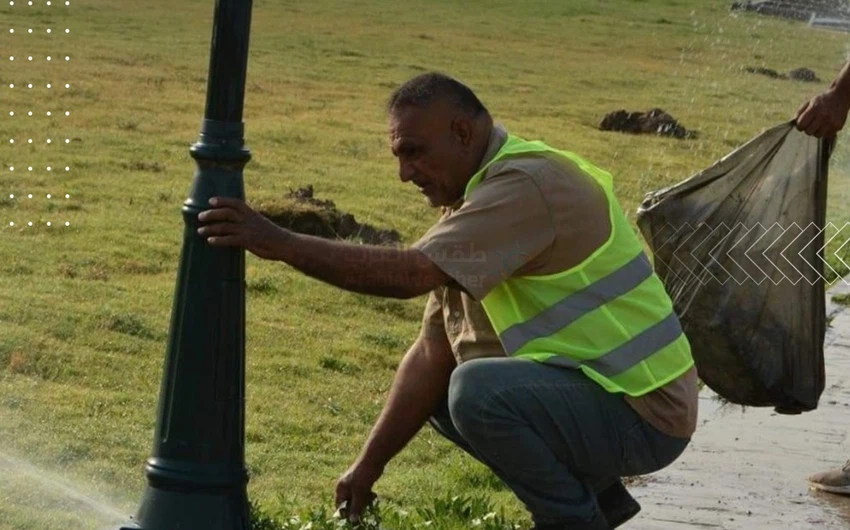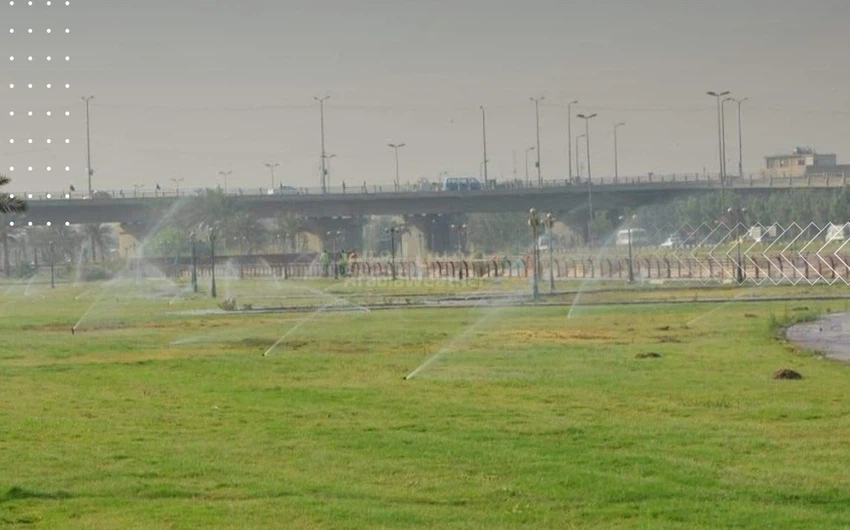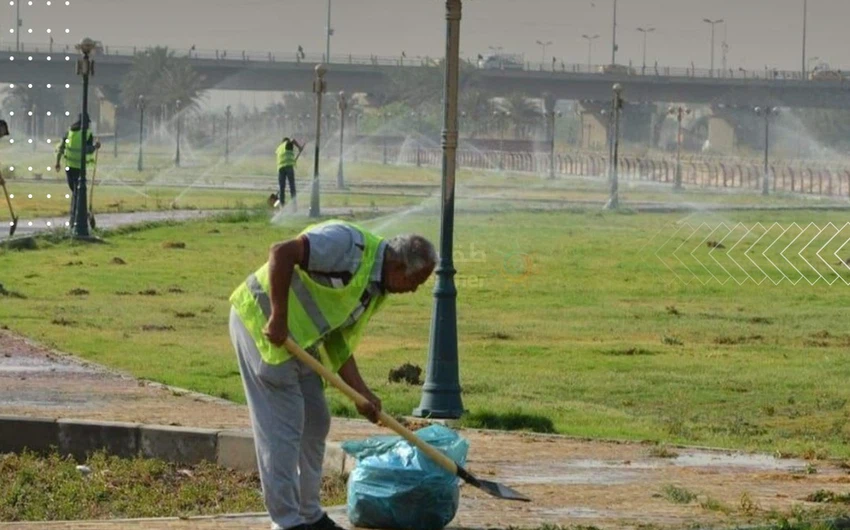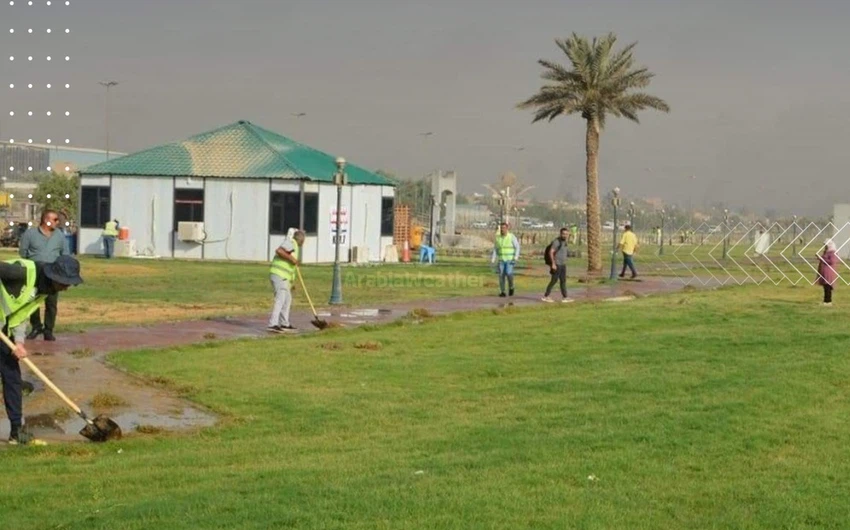With 10,000 trees, a major campaign to transform Baghdad into a green oasis and eliminate desertification
Arab weather - In order to combat desertification in Iraq, the Baghdad Municipality announced, on Saturday, the launch of a major campaign to transform Baghdad into a green oasis by planting 10,000 trees as a first stage, as part of other plans that the government is working on across the country.
The Mayor of Baghdad, Ammar Musa Kazem, said: "The first phase starts from the Army Canal, which is a vital and important place next to Rusafa that suffered neglect in previous periods. Today, we have transformed a group of spaces in it into green oases with the self-possession of municipal departments."
He added: "The Army Channel was divided into several segments and handed over to the municipal departments overlooking the Army Canal, and we embarked on a campaign to cultivate it, and it is continuing throughout the capital, Baghdad."
He stressed that "we directed the municipality departments to increase the green spaces within their geographical partitions, and last week we opened a garden with an area of 4 acres, and campaigns are continuing to preserve and expand the green areas to be a healthy and environmental outlet for the people of the capital, Baghdad."
He pointed out that "there is cooperation between the Municipality of Baghdad, civil society organizations and volunteer teams of Baghdadi youth to continue implementing joint campaigns in the sectors of hygiene, agriculture and afforestation to transform Baghdad into a green oasis."
Kazem also indicated that the "Baghdad Municipality" is serious in preparing many solutions to reduce climate changes, the latest of which is the dust storms that swept Baghdad and the cities of Iraq through important projects in the hygiene and sanitation sectors, as well as campaigns for agriculture and afforestation throughout the city of Baghdad.
Last Wednesday, the Baghdad Municipality announced the start of the second phase of the Green Belt project, in order to reduce climatic impacts in the Iraqi capital.
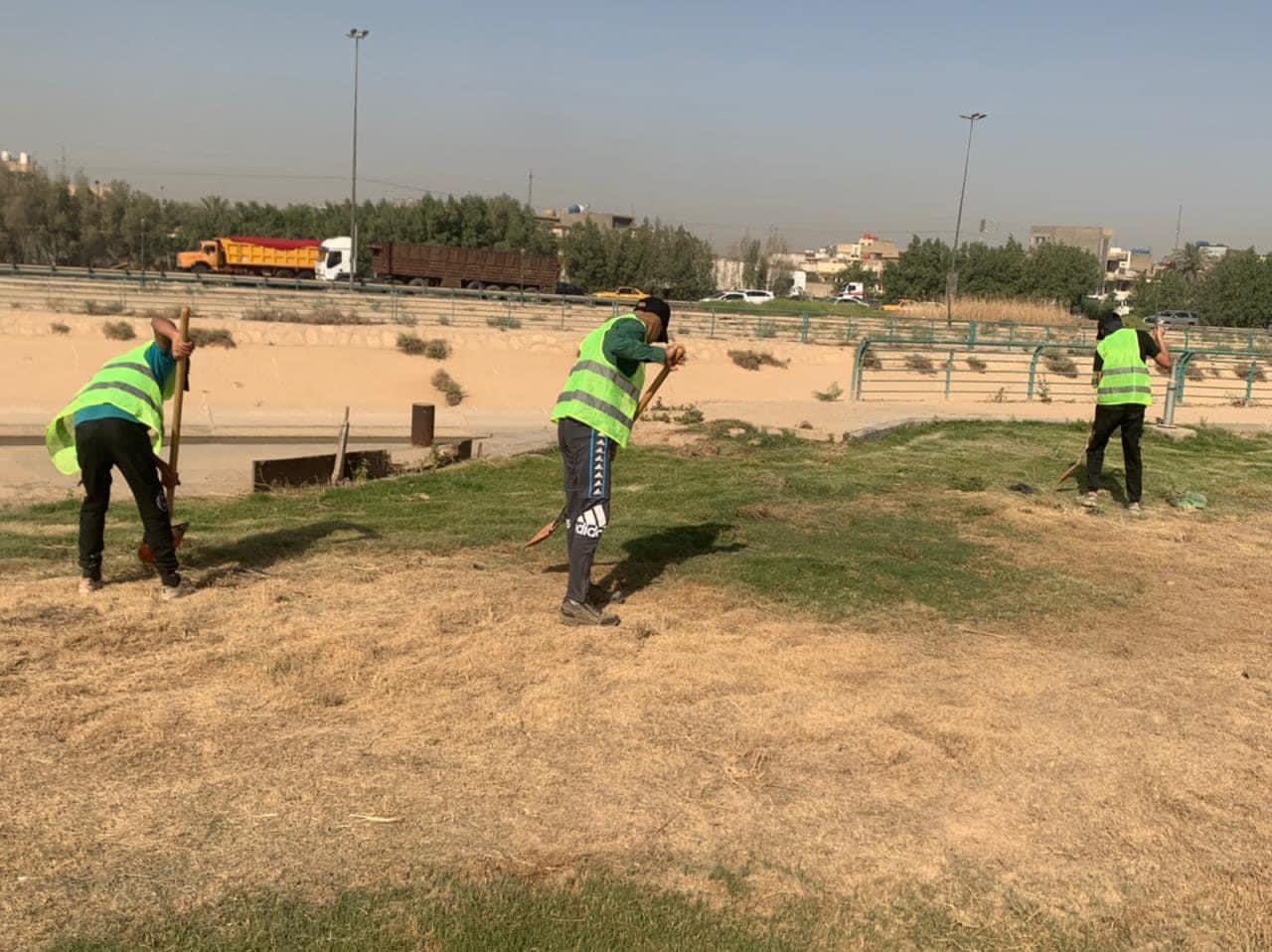
“It is better to arrive late than never.”
While the Iraqis praised the efforts of the concerned department through the communication sites, others criticized what they described as "the failure of the concerned authorities and their delay in addressing the problem of desertification and the lack of green spaces, expressing their hopes that the concerned authorities will continue their work in increasing and preserving green spaces and not to stop at a campaign or other.
These moves come after Iraq witnessed in the months of April and May this year, 10 dust storms , all of which hit the country through the Anbar desert.
Most of those storms disrupted life in Iraq, and prompted the disruption of school hours, universities and government institutions, and the suspension of air traffic at airports, as a result of low visibility.
Video | A dust storm sweeps Iraq, disrupting life and causing dozens of suffocation cases
Iraq also witnessed the registration of 122 dust storms during 283 days in one year. In the coming years, the country is expected to record 300 dusty days each year, according to the Iraqi Ministry of Environment.
It is noteworthy that desertification, drought, high temperatures, and lack of afforestation are among the most important reasons that lead to the occurrence of sandstorms, and as evidence of this, the proportion of natural and artificial forests reached only 1.6 percent of the entire area of Iraq, according to a statistic prepared by the "Central Bureau of Statistics", in year 2020.
You may also be interested in: The receding waters of the Tigris in Iraq reveal a 3,400-year-old ancient city
Land degradation in Iraq
The same statistic confirmed that 69% of Iraq's area is degraded lands; Because 15.6% of it is desertified land and 53.9% is threatened by desertification.
Iraq needs more than 14 billion trees to revive areas suffering from desertification, and preserve its environment from climate changes, according to the Iraqi Ministry of Agriculture.
The government's negligence with those who convert agricultural land into housing complexes is another reason behind climate change; Iraq has lost 60 percent of its cultivated and arable land, as a result of razing and abuse, according to Environment Minister Hassan al-Falahi.
Climate change in Iraq is not limited to desertification and dust storms only, but also suffers from water scarcity.
Arabia Weather App
Download the app to receive weather notifications and more..
